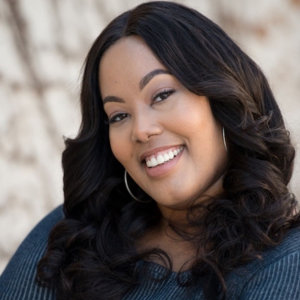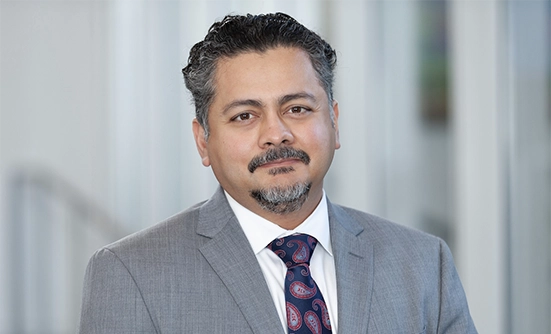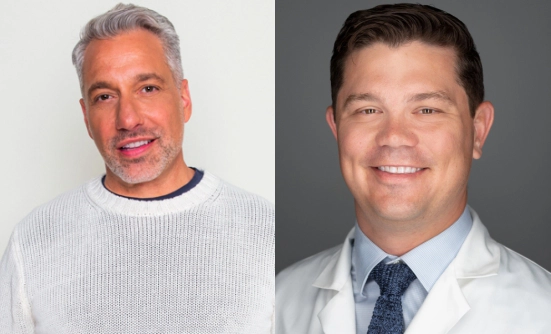
Jamil Rivers is a metastatic breast cancer survivor and the founder of The Chrysalis Initiative. She has been featured in People Magazine, the Philadelphia Inquirer, the Philadelphia Tribune, national campaigns for Anthropologie, Novartis, Pfizer, and Cancer and Careers, as well as on CBS News and Good Morning America. She resides in southern New Jersey in the Greater Philadelphia area with her husband and 3 sons.
2017 was a great year for the Rivers family; 39-year-old Jamil and her family had just moved into a beautiful new home. She had landed an executive position in her company, and her husband Ricky had recently received a clean bill of health after beating colon cancer. By all accounts, the Rivers family had much to be grateful for.
That winter everyone in the family contracted colds; and they all recovered. Everyone except Jamil. Her cough just wouldn’t relent.
Several doctor visits and multiple tests later, it was determined that Jamil had metastatic breast cancer. Stage IV from the start, the ER-positive, PR-positive, HER2-negative, invasive ductal carcinoma had spread throughout her body to her liver, stomach, spleen, bones, and lungs (which caused the cough).
The shocking news of her diagnosis was, of course, devasting to the young mother. But being a woman of great determination, Jamil began devising a plan. Her strategy was to learn as much as she could about breast cancer, treatments, and available support services. She made daily checklists to ensure that she was doing everything within her power to take care of herself while receiving the best possible care.
After a year of treatment, Jamil’s scans revealed no evidence of disease. To this day, she continues to take endocrine therapy to prevent a recurrence.
You might think that’s the end of her story, but Jamil’s diagnosis launched her on another journey: a journey of advocacy. Through her research, she learned about the staggering inequalities that exist for black and brown women with breast cancer. She felt a calling to get involved in the hope of changing the way healthcare is delivered to those in our communities at a greater risk of receiving less than optimal care.
Her role as advocate began with the simple desire to help those around her. Remember those checklists? She began sharing her lists with other breast cancer survivors she met while receiving treatment. Word spread about this empowered, positive, impassioned, determined young woman who had a plan in the form of a checklist. Women began approaching her in the hope of learning from her.
In March 2019 (which marked her 1-year “cancerversary”) she founded The Chrysalis Initiative as a way of sharing her experience of thriving while fighting metastatic breast cancer.
The mission of The Chrysalis Initiative is to ensure that every patient receives the care they deserve, especially women of disparate populations. They accomplish this mission in 2 ways: by equipping women with coaching, mentoring, and education, and by conducting training for healthcare systems in the hope of improving the delivery of care.
Today, Jamil is feeling great. She is healthy, strong, and well equipped to lead The Chrysalis Initiative. By all accounts, Jamil still has much to be grateful for, including the impact she’s had on the lives of other breast cancer survivors.
I had the incredible opportunity to speak with Jamil. I am most grateful to her for sharing her story, and I am happy to share that story with you. What follows is our thoughtful exchange.
Jamil, you’ve talked about how overwhelming a cancer diagnosis is. Can you describe how you got through your year-long treatments?
After my diagnosis, I tried to structure my life so that my family and I were fully supported. I accepted any and all offers of help from family, friends, and community resources. Support came in many forms—it was anything that you could think of. Meals, childcare, rides. I made the decision to start chemotherapy, and I also set a goal to continue working. But I needed support to do that. As an example, I used a transportation service offered by the American Cancer Society to pick me up from work, take me to treatment, pick me up from the hospital and take me home.
Whether I felt my family or I needed the help or not, I accepted it. I really overdosed on support!
You were able to continue working throughout your treatment. How did you deal with the side effects of chemotherapy?
I used many integrative therapies to help with side effects. I found an organization that provides free services to people with breast or ovarian cancer; through that organization, I received acupuncture and oncology massage. I also met with a nutritionist and made changes to my diet. All of these things really sustained me and allowed me to continue working full-time and keep up with the kids.
How did you evolve from “patient” to “advocate”?
When I was diagnosed, I knew I had a lot to learn about breast cancer, and so I just started reading as much as possible. I was really shocked to learn that black women with breast cancer are 71% more likely to die of the disease than white women with breast cancer. I also learned that only 2% to 5% of research dollars are allocated to metastatic disease. I really wanted to get involved to help change these statistics.
Through my research, I ended up connecting with the National Cancer Institute, Living Beyond Breast Cancer, METAvivor, and Susan G. Komen. I joined the Komen Metastatic Advisory Committee and the Komen African American Health Equity Initiative.
I’ve become involved in as many aspects of advocacy as I can. Anything from reviewing grants to policy advocacy. I’ve met with legislators and testified to the FDA in the hope of improving the landscape of cancer treatments. I want to ring the alarm and bring more attention to these facts because status quo isn’t working.
How did you come to establish The Chrysalis Initiative?
Honestly, I feel like The Chrysalis Initiative established itself! Back when I was receiving chemotherapy, I created checklists to make sure I was doing everything I could every day to stay on point and take care of myself.
When I was in the clinic, actually receiving a treatment, another patient with stage IV breast cancer popped into my chemo room and asked me to share what I knew about our diagnosis. I shared my checklist with her, and it just grew from there. At first, I was sharing my checklist with 5 women, then 10, 15, 30 women. I noticed that all of us were doing well. Yes, we all had metastatic breast cancer, but we were just putting 1 foot in front of the other.
I felt like I was on to something. When I thought about the breast cancer landscape and what was missing, I felt that an organization like The Chrysalis Initiative was needed to help educate patients and address disparities. I decided to make The Chrysalis Initiative official in March 2019 on my 1-year cancerversary.
Since then, we’ve evolved to include coaching and patient navigation support for women with breast cancer and their caregivers.
What can someone expect from a Chrysalis Initiative coach?
We don’t think that anyone should have to go through cancer treatment alone. Our coaches are breast cancer survivors themselves and know what other patients are going through. We have a coaching curriculum to make sure our patients have the knowledge they need when facing cancer treatment.
You’re in the process of creating a mobile phone app for Chrysalis Initiative participants. Can you describe the capabilities of that app?
It’s really your cancer coach in an app. The app enhances the services that we already provide in our programming. Currently, participants connect with their coach via phone, Zoom, or sometimes in person. The app is another tool to connect your support network.
The app also allows participants to directly connect to The Chrysalis Initiative. They will receive push notifications and educational information. They’re also looped into our upcoming community events, activities, and webinars.
A goal of The Chrysalis Initiative is to promote treatment equity for all patients. How are you accomplishing that goal?
Of course, I always say get a Chrysalis coach. Connect with us. We want to share our knowledge about national treatment guidelines and nationally recognized standards of care.
So, if you have HER2-positive breast cancer, standard of care includes Herceptin. There isn’t a scenario where you should not receive this standard of care. We want you to have this information to ensure you are receiving the best possible care.
We also want to make sure that you have access to genetic and genomic testing, which can reveal actionable targets in the cancer that you are facing.
Unless your healthcare provider is sharing this information with you, you would have no idea what to ask for. We make sure that you understand what that quality standard of care is.
We also want to help people understand the importance of participating in clinical trials—especially as black women—this is the only way to advance treatment options.
The Chrysalis Initiative offers equity training for healthcare providers and cancer institutions. What does that entail?
We have a team that evaluates the ability of a health system to deliver equitable care across the board. Meaning, that a black woman who goes in for breast cancer care is going to receive the same patient experience as a white woman who goes in for breast cancer care.
Our team assesses deficiencies and determines if they are due to bias and racism or structural and procedural issues. When the assessment is complete, we provide recommendations and can help with implementation and training.
What advice do you have for black women about breast health?
Know your risk. Before my diagnosis, I didn’t know that my grandmother had breast cancer. I found out much later that she went through chemotherapy and radiation, but our family never discussed it.
Many times, in cultures of color, we don’t share our vulnerabilities, but it really is important for us to know our family history. My advice is to find out what ailments, diseases, or medical challenges that your parents have had, your grandparents, your great grandparents.
If you could go back in time and give yourself advice at the time of your diagnosis, what would it be?
Breathe. Just breathe and keep putting 1 foot in front of the other.
Thank you so much, Jamil, for sharing your story. Please accept our best wishes for continued success with The Chrysalis Initiative.
To learn more about The Chrysalis Initiative please visit www.thechrysalisinitiative.org.














